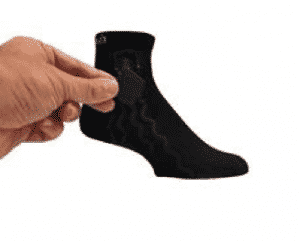Journalists attending AdvaMed’s 2017 The MedTech Conference were treated to a behind the scenes look at Flex’s Silicon Valley Innovation Center. Flex, (formally Flextronics) a $25B global electronics manufacturer with 200,000 employees globally, has been utilizing their expertise contract manufacturing across dozens of industries, to apply the lessons learned and fast paths to innovation that are accelerating product development.
Flex’s “Sketch to Scale” comes to life in their innovation center and robotics lab. From conception and design to prototyping and advanced engineering, Flex’s Innovation Center is where the majority of today’s “smart home” and “connected health” technology is designed and manufactured.
“We make everything for everybody,” said John Carlson, President of Flex Health Solutions. Highlights from the tour included flexible circuitry, printed on a stretchable material, that could (potentially) be used to monitor skin biometrics, a sweat sensor that is able to read blood glucose levels from sweat, and an advanced robotics lab that allows Flex to streamline the R&D, design and manufacturing process for their clients.
For more information, visit www.flex.com.


 According to the U.S. Center for Disease Control and Prevention, an older adult is treated for falls in emergency rooms across the country every 11 seconds. Every 19 minutes, an older adult dies from a fall. Stats show more than 800,000 65-or-older Americans suffer from falls each year, not only leading to hospitalizations and further safety concerns, but increasing healthcare costs for individuals and institutions alike. With the 65+ population expected to rise from 46 million today, to 98 million plus by 2060, the safety concern isn’t going to go away and costs are sure to increase.
According to the U.S. Center for Disease Control and Prevention, an older adult is treated for falls in emergency rooms across the country every 11 seconds. Every 19 minutes, an older adult dies from a fall. Stats show more than 800,000 65-or-older Americans suffer from falls each year, not only leading to hospitalizations and further safety concerns, but increasing healthcare costs for individuals and institutions alike. With the 65+ population expected to rise from 46 million today, to 98 million plus by 2060, the safety concern isn’t going to go away and costs are sure to increase.